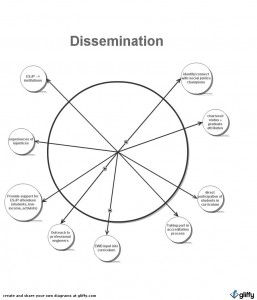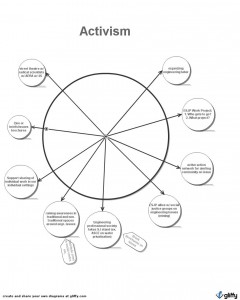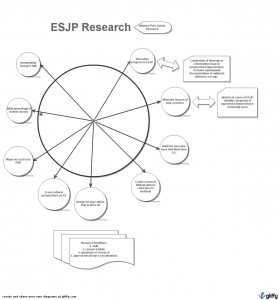Thursday, August 5, 2010 ESJP Conference, London Typed by Lisa McLoughlin Panel session service learning: in the service of social justice
Dean Nieusma: Public participation in engineering design practice
We are all going together where my abstract points.
I am inviting you all to participate in the participatory action research project which was framed at this conference last year: the questions, approaches, and answers all evolve together and change together—the idea is to frame a bigger ambitios project and anyone who wants to participate can take ownership and contribute.
The abstract is a piece of the project I have taken ownership for and I am ask you to participate.’’
The 3 facets of organization: Research, taking care of the group, practice <<<<<(?)
4 areas from last year 1)skills inventory 2) past-current research of yours central to SJP work 3) questions you would like answered about ESJP work 4) main approaches to ESJP you employ----how and where you do ESJP work- compiling these gets an interesting concept
In conversations yesterday a 5th item came up: in the spirit of the bibliography, a clearinghouse list of people who are doing work in this area already. For me this would be bounded by people who are explicitly attending to social power.
Feel free to email me about any of the above. I agree to coordinate the ongoing research project which will change from year to year. Neiusma at rpi.edu
My research (see the abstract) I am interested in expertise as a concept mostly because when we use expertise we have in our mind a muddled mix of specialized knowledge and institutional authority. Lots of people have specialized knowledge that we do not automatically assume as expert---people who are not recognized as experts legitimately are not entitled to speak. Decisions that impact your life should have your input, but often these people are not allowed to speak (e.g. a village in Shri



